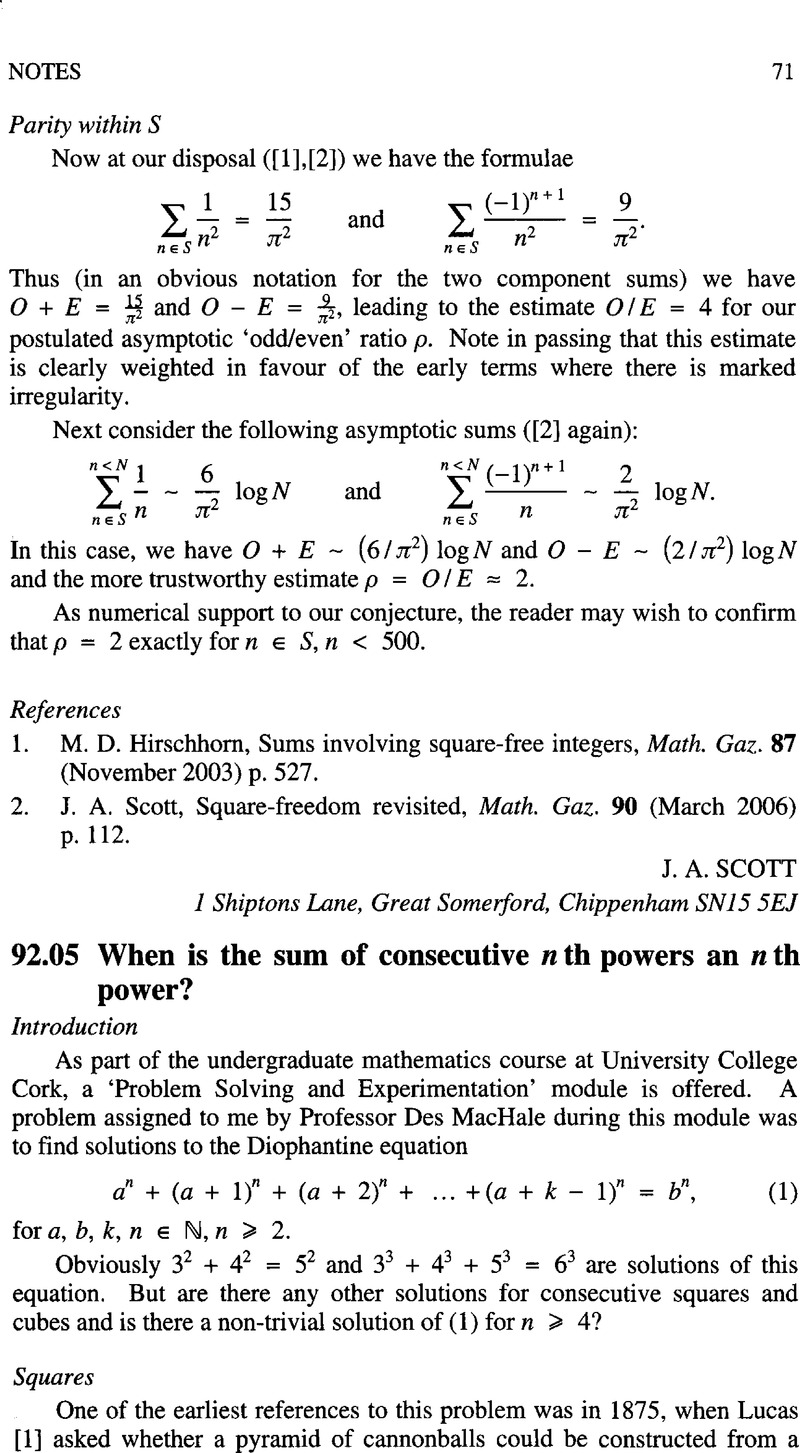No CrossRef data available.
Article contents
92.05 When is the sum of consecutive n th powers an n th power?
Published online by Cambridge University Press: 01 August 2016
Abstract
An abstract is not available for this content so a preview has been provided. Please use the Get access link above for information on how to access this content.

- Type
- Notes
- Information
- Copyright
- Copyright © The Mathematical Association 2008
References
2.
Watson, G.N., The Problem of the Square Pyramid, Messenger Math., 48 (1918) pp. 1–22.Google Scholar
4.
Beeckmans, L., Squares Expressible as Sum of Consecutive Squares, Amer. Math. Monthly
101 (1994) pp. 437–442.Google Scholar
5.
Squares Expressible as a Sum of n Consecutive Squares, Advanced Problem 6552, proposed by Laub, M., Amer. Math. Monthly, 97 (1990) pp. 622–625.Google Scholar
6.
Brown, K., Sum of Consecutive Nth Powers Equals an Nth Power. http://www.mathpages.com/home/kmathl47.htm
Google Scholar
7.
Wiles, A., Modular Elliptic Curves and Fermat’s Last Theorem, Annals of Mathematics, 142 (1995) pp. 443–551.Google Scholar
8.
MacHale, D., On a particular Diophantine equation, Math. Gaz. 89 (July 2005) p. 246.Google Scholar




